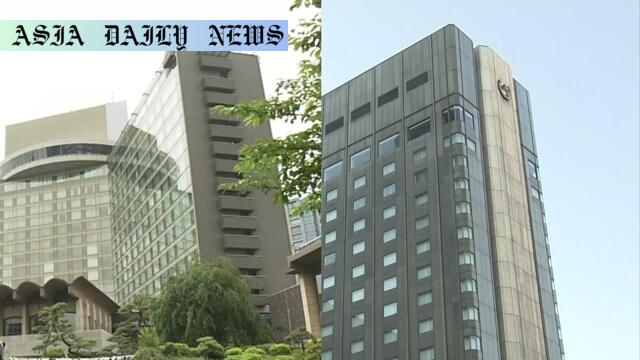Antimonopoly Law: Japan’s watchdog warns 15 hotels on potential cartel practices in Tokyo’s competitive market.

Introduction: The Alert from Japan’s FTC
The Fair Trade Commission (FTC) of Japan has recently issued stern warnings to 15 major hotel operators in Tokyo, highlighting a possible violation of the Antimonopoly Law. This warning arose from long-standing meetings among hotel representatives who exchanged sensitive internal information, such as room occupancy rates, pricing strategies, and future plans for rate adjustments. These actions, the FTC suggests, may constitute illegal price fixing under a cartel arrangement. Though there was no concrete evidence of simultaneous rate hikes, concerns remain about how the shared data influenced hotel room pricing across participating entities.
Understanding the Alleged Violation
The FTC’s investigation revealed that for years, monthly meetings were held where sales representatives from some of Tokyo’s top hotels, including Hotel New Otani Tokyo, Imperial Hotel Tokyo, and The Okura Tokyo, openly discussed internal metrics. While this might have fostered industry camaraderie, it posed legal concerns as it opened potential avenues for collusion. The FTC argues that even indirect influence, such as setting competitive rates based on shared data, can disrupt the fair competition environment prescribed under Japan’s legal framework.
The Economic Context and Public Impact
Tokyo’s hotel industry has been under financial pressure due to fluctuating tourist trends during and post the COVID-19 pandemic. The resurgence of global travel has led to surging demands and, consequently, higher room rates. However, with the FTC bringing scrutiny to the industry’s practices, questions arise about whether such price increases were fully market-driven or influenced by uncompetitive practices. The broader implication extends beyond Tokyo, as similar practices may exist in other parts of Japan, potentially impacting the national economy.
Response and Compliance Measures
Following the FTC’s intervention, the implicated hotels have vowed to take the warning seriously, ceasing their controversial meetings officially in the fall of 2024. Key players like Hotel New Otani Tokyo and Imperial Hotel Tokyo have reiterated their commitment to adhering to the law by revisiting internal policies and ensuring compliance. Additionally, national hotel organizations have been instructed by the FTC to double their efforts in educating members about antitrust regulations, ensuring broader industry adherence.
The Road Ahead: Ensuring Fairer Competition
While the FTC’s proactive oversight is commendable, it indicates a pivotal time for the Tokyo hospitality industry. Transparency and adherence to competitive laws are essential to maintaining the industry’s integrity while catering to a burgeoning tourist base. Furthermore, it showcases the need for businesses worldwide to strike a balance between collaboration and compliance in competitive sectors. As Tokyo continues to draw international visitors, the implementation of best practices can serve as a benchmark for other tourism-driven cities globally.
Commentary
The Importance of Competitive Integrity
The warning issued by Japan’s Fair Trade Commission against some of Tokyo’s top hotels sheds light on a significant issue within the hospitality sector. In competitive markets like Tokyo, safeguarding consumer trust and ensuring fair competition must remain a constant priority. When globally recognized hotels are implicated in borderline antitrust violations, it tarnishes not only their reputation but also the integrity of the industry they represent. The FTC’s intervention, while assertive, sends a pivotal message that price manipulation—whether direct or indirect—cannot go unchallenged.
A Sector Under Global Scrutiny
This issue is not isolated to Japan. Around the world, businesses operating in highly competitive environments are grappling with complex antitrust concerns. The incident in Tokyo reflects a broader narrative of how internal price-sharing strategies can spark regulatory action. Hotels, central to both commerce and tourism, must design their operational frameworks in ways that align firmly with legal boundaries. Achieving this, however, necessitates consistent education, compliance measures, and governance.
Opportunities for Improvement
For the Tokyo hospitality industry, this scenario also presents opportunities for self-reflection and improvement. Implementing robust internal monitoring systems, adhering to antitrust compliance mandates, and fostering a culture of ethical business practices can collectively transform such challenges into progress milestones. Doing so will enable Tokyo’s hotels to retain their competitiveness while gaining long-term consumer trust in an increasingly regulation-conscious global market.
Broader Implications
Moving forward, other sectors should note the gravity of FTC’s stance. The hospitality industry in particular serves as a reminder of how essential fair play remains, especially when economic growth aligns with rising tourist demands. Addressing antimonopoly concerns isn’t merely about avoiding penalties—it’s about doing right by the consumers, employees, and stakeholders that rely on a market’s functionality. As global tourism trends continue to evolve, Tokyo’s experience serves as both a cautionary tale and a blueprint for reform.


